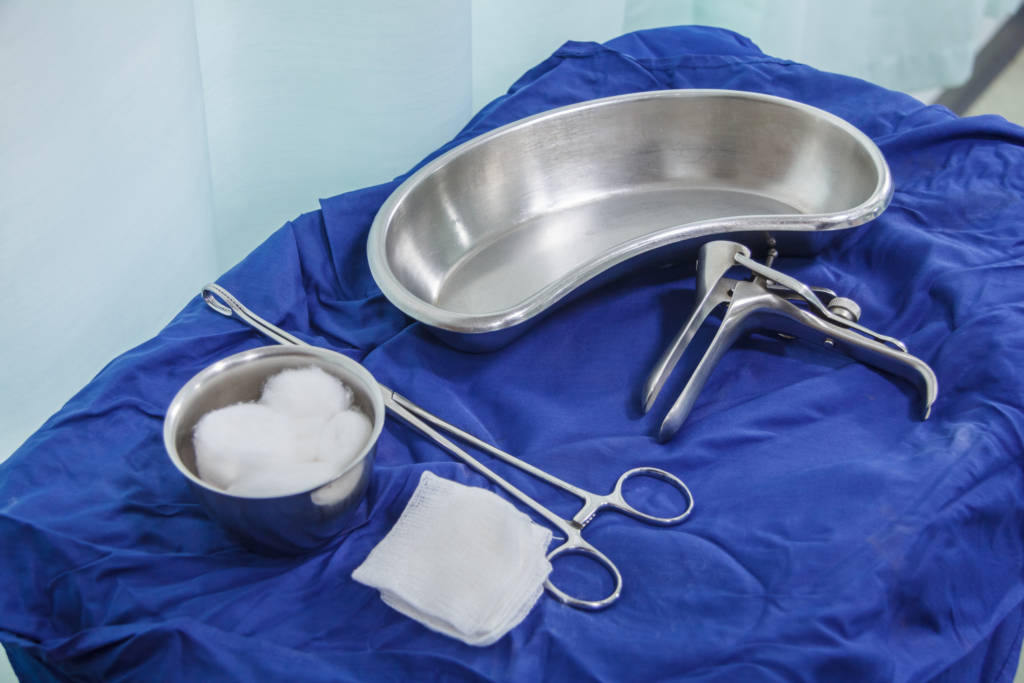Getting a yearly Pap smear is something that most women don’t want to talk about, but it’s something that we need to address. January is cervical cancer awareness month, which is why it’s important to get an annual gynecology exam because this routine exam can help save lives.
A recent survey from the National Association of Nurse Practitioners in Women’s Health and HealthyWomen found some interesting facts about how women feel and prepare for their gynecologic exam. These organizations with support from Hologic, Inc. conducted a 15-minute online survey among 1,000 U.S. women from diverse age groups, religions, regions, education levels, and income. They found a variety of things that go through the minds of women prior and during the exam, including:
-85% of women consider their gynecologic appointment when they are getting ready that day
-80% of women prefer to wear granny panties over lingerie to their GYN exams
-7 in 10 women spend more time bathing/showering before their GYN exam – an average of 7 minutes more than usual
-7 in 10 women specifically shave and wax for their GYN exam; in fact, around 1 in 10 women get a bikini or Brazilian wax
-79% of women wonder if they should use the restroom before their GYN exam
-4 in 5 women keep their socks on while in the stirrups
-45% of women believe the gown should be worn to the front, yet 55 percent of women believe it should be worn open to the back
-3 in 5 women claimed to prefer to cut right to the chase and discuss their health concerns at their appointment
-Among women in their 30’s, 61% think about their sex life during their GYN exam, but only 42% bring it up
-Women are 26% more likely to talk about the weather than their sex life at their GYN exam
-1 in 4 women would rather discuss their favorite TV show than the tests they receive at their GYN exam
-82% of women prefer to have a female doctor perform their GYN exam
“About 86% of women look at OB/GYN Pap tests as a necessary evil, they don’t like to talk about it, but oddly enough in our survey we learned that about 60% wanted to, even though at the end of the survey only about 40% actually brought it up,” says Aimee Chism Holland, women’s health nurse practitioner, DNP, WHNP-BC, FNP-C, RD and Assistant Professor at the University of Alabama at Birmingham.
They found that in most cases, women wait until their health provider asked them if they wanted to have the exam. If you are between the ages of 21 and 65, you need to have a cervical cancer screening. A Pap test is recommended for women ages 21 to 29 years old and a Pap test + Human Papillomavirus (HPV) screening is recommended for women 30 to 65 years old. “That appointment is meant to empower women to be able to ask questions about their health concerns, talk about her family history, or even about something she heard on the news,” says Holland. It’s very important that women keep that appointment and are up to date on their screenings.
In 2012, the American Society of Colposcopy and Cervical Pathology, the American Cancer Society, and a number of health organizations got together and created the Cervical Cancer Screening Guidelines. The annual OB/GYN exam is so important and women need to be reassured that the Cervical Cancer Screening Guidelines that are in place today are based on hundreds of Pap test results from women across this nation, explains Holland.
What exactly are they looking for?
The obvious answer to this question is that your healthcare provider is looking for any signs of cancer. “When we do a Pap test, we use a spatula to collect cells from the outside of the cervix and a broom to collect cells from the inside of the cervical canal, we then take those cells and we put them in a preservative and send them on to a pathologist. He reviews the cells for their quality and looks for any abnormality or any cell that is suspicious or pre-cancerous in nature,” explains Holland.
For the HPV test, they test for the presence of the virus, many times they can find low-risk strands of HPV, which don’t cause cancer, but there are some that do, such as strands 16 and 18 which are responsible for about 70% of cervical cancers. “That’s the beautiful thing about the Pap test—it saves lives,” she says. “If a woman keeps her routine exam, there’s no reason why any woman in this country should get cervical cancer and research supports that statement.”
The best part is that a healthy body and a healthy immune system can clear the virus within 12 to 24 months if the woman is healthy and takes care of herself. This includes the prevention of cervical cancer with the HPV vaccine, routine condom use, and abstaining from smoking which puts you more at risk for cervical cancer. Females between 9 to 26 years old and males between 9 and 21 years old should get an HPV vaccine.
Pap tests save lives and these tests are able to detect the virus that causes cervical cancer at an early stage. If a woman is in the early stages of cervical cancer she’s asymptomatic, which means that she’s showing no symptoms. If she’s in the middle stages of cervical cancer, she usually has abnormal vaginal bleeding or spotting and a malodorous discharge. If she’s in the later stages she has a lot of bleeding, a lot of malodorous discharge, pelvic pain, bladder pain, back pain, and she will have a lot of fatigue and anemia from the heavy bleeding, in addition to weight loss, loss of appetite, and constipation. “You can be in the middle to later stages and not know you have it and that’s just unacceptable in America when we have access to care for annual exams every year,” says Holland.
For HPV there are no signs. There are cases where women have genital, cervical or vaginal warts and show low-risk strands, but these don’t cause cervical cancer. “Even if this is a big deal to women, aesthetically it’s not a very big deal to us, a big deal to us is high-risk strands because they cause cervical cancer,” she says.
The best thing that a woman can do to prevent cervical cancer is to get the HPV vaccine and get an annual Pap test as an adult. “There’s no reason in this world why any woman should contract the virus to the point where they have cervical cancer because cervical cancer is preventable,” says Holland. If you haven’t done so already, call your doctor and ask him or her when you had your last Pap smear. January is not only a great time to focus on your New Year’s resolutions, but also take better control of your health.
